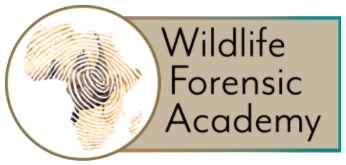2-Week Wildlife Forensic Course for International Students
This immersive two-week program is designed for international students looking to gain a comprehensive understanding of wildlife forensics and conservation, while experiencing the rich educational and cultural offerings of South Africa. Blending interactive learning with educational tourism, this program provides a truly unique opportunity to explore the ecology of greater Cape Town while building practical skills in wildlife crime investigations. Join us for an unforgettable educational experience that will deepen your knowledge, expand your skills, and immerse you in the beauty and complexity of wildlife conservation in Africa.
Objectives:
In-depth understanding of Wildlife Forensics, Wildlife Crime, and the illegal wildlife trade
Gain the confidence to conduct wildlife crime investigations, from trace collection and evidence documentation to courtroom presentation
Experience South Africa’s diverse wildlife and gain direct exposure to the real-world challenges and key players in the field of wildlife conservation and crime prevention
Program:
This training includes the following:
Introduction to Wildlife Crime, Poaching and Illegal Trade;
Marine Wildlife Poaching;
Preservation of a Crime Scene;
Role of Forensics;
Forensic Traces (Detection and Collection);
Crime Scene Management;
Forensic Photography;
Wildlife Anatomy: Handling and First Aid;
Forensic Pathology;
Human-Wildlife Conflict;
Hands-on Experience Laboratory Training:
Human Behaviour at the Crime Scene;
Courtroom Training;
Anti-poaching and Bush Skills;
Injured and Poisoned Animal Management;
Health: Wildlife and Human: Risks and Prevention;
South African Fauna and Flora.
Educational Touristic Activities:
San Cultural Experience;
Marine Conservation and Research;
Tour of Cape Point and Table Mountain;
Cape Town Waterfront;
Two Oceans Aquarium Educational Tour;
Seabird and Raptor Rehabilitation Tour;
Cheetah Outreach Educational Tour;
Game Drive;
There will also be a morning with surfing/sea kayaking/whale watching - weather permitting.
What You Will Learn:
You will be introduced to the wide range of wildlife crime cases and the methods used to investigate them. You will expand and apply your knowledge of forensic science and investigative techniques to a variety of wildlife crime scenarios, focusing on the challenges and crime types seen in South Africa. Through understanding the key principles of forensic science, you will learn how continuity and integrity of evidence, crime scene documentation, evidence recovery and analysis are used in wildlife crime investigations.
You will have practical experience in the preservation, documentation and analysis of wildlife crime scenes using the state-of-the-art crime scene facility at Buffelsfontein nature Reserve in South Africa. Mock scenes will provide you with the opportunity to plan and implement crime scene investigations that mimic real-life scenarios. You will gain knowledge of other disciplines that are important in wildlife crime investigations including forensic veterinary pathology and injured animal management.
In addition, you will also participate in a range of educational visits and activities which will provide you with knowledge of the different organisations and initiatives actively working in conservation in South Africa as well as gaining a better understanding of South African culture.
How You Will Learn:
A mix of lectures, demonstrations, flipped classroom and hands-on practical activities will be utilised. In addition, education excursions will be integrated into programme to provide background context to South African wildlife, conservation and culture.
Lectures
Theory, knowledge, understanding
Experimental Learning
Practice, problem solving, application
Educational Excursions
Context, background, culture
Educational Aims:
To introduce and expand knowledge and practical skills in wildlife crime investigations with particular focus on South African flora and fauna including current conservation challenges and legislation.
To apply current forensic and policing knowledge and skills to wildlife crime investigations including the criminal justice chain and recovery, analysis and interpretation of evidence.
Learning Outcomes:
Apply current knowledge of forensic science and investigative techniques to a range of wildlife crimes.
Interpret and demonstrate an understanding of the current legislation conservation challenges, including human-wildlife conflicts and evaluate the impact that these have on the investigation of wildlife crimes.
Demonstrate an understanding of the main theoretical and practical skills of personnel who investigate wildlife crimes.
Demonstrate knowledge in the main procedures used in wildlife crime scene documentation and analysis.
Apply practical skills to the investigation and interpretation of evidence from a mock wildlife crime case.
Communicate findings from a wildlife crime investigation.
Location:
The training will be facilitated at Buffelsfontein Game and Nature Reserve on the West Coast of South Africa as well as in Cape Town.
What’s Included:
Catering (Breakfast, Lunch and Dinner);
Transport during the course;
Airport Pick-up and Drop off;
All entry and tour fees.
Not Included:
Alcoholic drinks;
Flights to and from Cape Town;
Our shuttle service will collect course participants from Cape Town between 8:00 AM and 9:00 AM on the Sunday the course begins. The course will conclude on Saturday afternoon, with participants being dropped off at their accommodation or the airport. Upon request, we can provide recommendations for reputable drivers for airport transfers and suggested Cape Town accommodations;
Students are also given the option of extending their course to include an Internship. Internships require separate application and additional costs.
Upcoming Course Dates:
13 April 2025
11 May 2025
17 August 2025
31 August 2025
1 February 2026
Cost:
€2750







